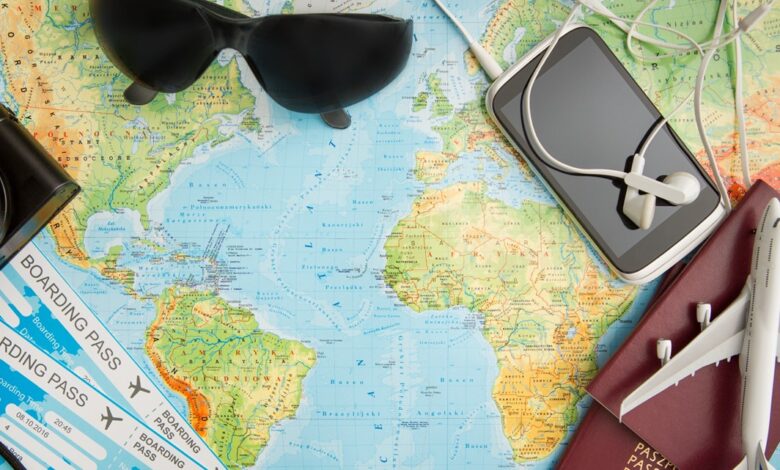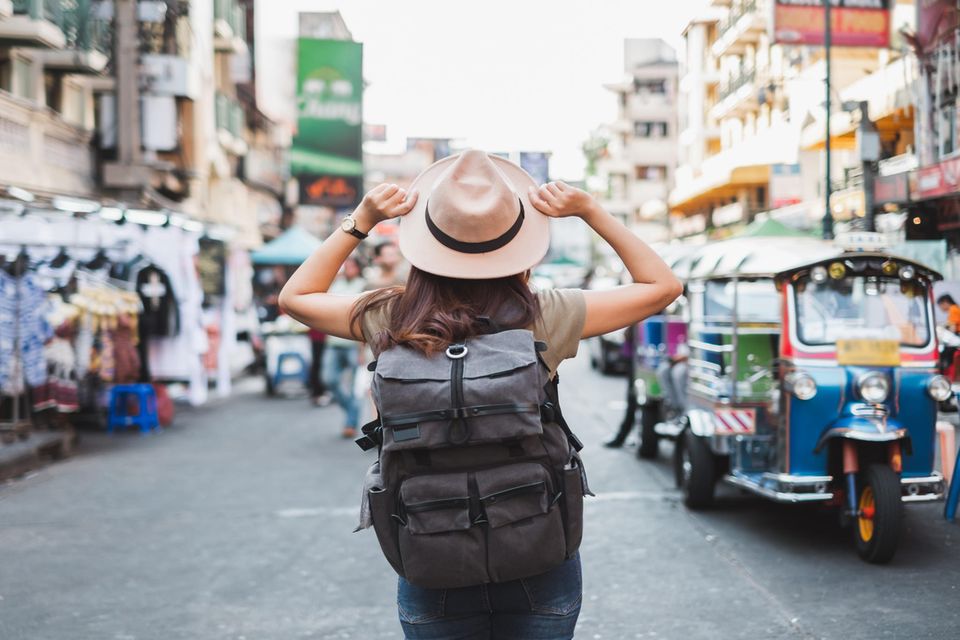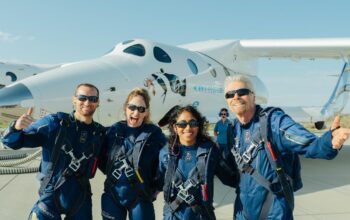In the wake of unprecedented global disruptions, a powerful and undeniable force has reshaped the travel landscape: revenge travel. This isn’t just about taking a vacation; it’s a fervent, almost visceral, desire to make up for lost time, missed experiences, and canceled plans. The phenomenon isn’t fading; in fact, revenge travel continues strong with a sustained surge across the world. This comprehensive article will delve into the compelling psychological and economic factors driving this relentless momentum, dissecting its diverse manifestations, exploring the profound impacts on both travelers and the tourism industry, offering practical insights for navigating this dynamic environment, and highlighting how this unique period is reshaping the future of global exploration. Prepare to understand why the world is traveling with a renewed passion, making up for every moment missed.
A Desire Unbound

For nearly two years, the world collectively hit pause. Borders closed, flights were grounded, and personal connections were largely confined to screens. The yearning for travel, for new experiences, for human connection, only intensified. When restrictions finally eased, this pent-up demand exploded into what the industry now calls revenge travel. It’s more than just a catchy phrase; it’s a deep-seated psychological response to deprivation, a powerful assertion of freedom and agency after a period of prolonged constraint.
Revenge travel continues strong because it taps into fundamental human desires. It’s about reclaiming autonomy over our lives, celebrating rediscovered freedom, and investing in experiences that reaffirm our well-being and connections to the world. Imagine finally taking that dream trip to Italy after years of waiting, or reuniting with family members across continents. This phenomenon manifests in several ways: travelers are spending more, staying longer, splurging on bucket-list experiences, and often venturing to destinations they’ve long dreamed of but postponed. It’s driven by a sense of urgency – the feeling that life is precious and opportunities should be seized. This isn’t just about leisure; it’s about making up for lost time, creating indelible memories, and proving that the human spirit for exploration cannot be contained indefinitely. The resilience of the human desire for discovery is powering this sustained surge, making it a pivotal moment in the history of tourism.
Why Revenge Travel Maintains its Powerful Momentum
Several profound psychological, economic, and social factors are converging to ensure that revenge travel remains a dominant force in the global tourism sector:
A. Pent-Up Demand from Lockdowns and Restrictions:
The most obvious driver is the immense accumulation of unfulfilled travel desires from years of global and local travel restrictions. People simply couldn’t travel, leading to a massive backlog of deferred plans and a strong urge to make up for lost time as soon as possible. This created an explosive initial demand that continues to echo.
B. “Carpe Diem” (Seize the Day) Mentality:
The experience of a global crisis has fostered a powerful “live for today” attitude. Many individuals feel a heightened sense of urgency to embark on dream trips and experiences they might have previously postponed, fearing future disruptions or simply recognizing the fragility of life.
C. Accumulated Savings (The “Forced Savings” Effect):
During lockdowns, many consumers significantly reduced discretionary spending on dining out, entertainment, and non-essential goods. This led to substantial savings for a segment of the population, which they are now eager to spend on experiences, primarily travel.
D. Flexibility of Remote Work and “Work From Anywhere” Policies:
The widespread adoption of remote and hybrid work models provides unprecedented flexibility. Individuals are no longer tied to an office, allowing them to travel for longer periods, during off-peak seasons, and to more diverse destinations, further fueling extended revenge travel.
E. Desire for Reconnection and Family Reunions:
The pandemic separated families and friends across borders. Revenge travel often manifests as a powerful drive to reunite with loved ones, leading to significant increases in international family visits and group trips.
F. Wellness and Mental Health Prioritization:
Many view travel as essential for mental well-being, stress relief, and rejuvenation after a challenging period. Revenge travel is often seen as a necessary reset, a way to decompress and restore psychological balance.
G. “Bucket List” Acceleration:
With the “Carpe Diem” mindset, long-held travel dreams and bucket-list destinations are being prioritized and booked without delay, leading to splurging on higher-end experiences and longer stays.
H. Social Media Influence and FOMO (Fear of Missing Out):
As more people travel and share their experiences online, it creates a powerful ripple effect. Seeing friends and family enjoying their revenge trips can trigger FOMO, encouraging others to plan their own adventures.
The Multifaceted Manifestations of Revenge Travel
Revenge travel isn’t a monolithic phenomenon; it presents itself in various forms, catering to different desires and contributing to diverse segments of the tourism industry. Its scope is broad, impacting everything from luxury resorts to adventure tours.
Key Characteristics and Trends of Revenge Travel
A. Increased Spending and “Treat Yourself” Mentality:
Travelers are often spending more per trip than pre-pandemic. This includes booking higher-category accommodations, splurging on premium experiences, dining at finer restaurants, and extending trip durations, driven by the feeling of deserving a lavish escape.
- Impact: Boosts luxury travel, fine dining, and experiential tourism sectors.
B. Longer Trip Durations:
With accumulated vacation days and newfound work flexibility, many are taking longer trips than before. A 1-week trip might become 2 or 3 weeks, allowing for deeper exploration and more relaxation.
- Impact: Benefits long-stay accommodations, vacation rentals, and slow travel.
C. Prioritization of “Bucket List” Destinations:
Dream trips that were once postponed are now being prioritized. This includes iconic destinations, once-in-a-lifetime safaris, exotic cruises, or remote expeditions that represent ultimate travel aspirations.
- Impact: Fuels demand for specialized tour operators and unique, high-value experiences.
D. Emphasis on Wellness and Self-Care Retreats:
Many are traveling specifically for rejuvenation and mental well-being. This includes booking wellness resorts, spa retreats, yoga getaways, or nature-based escapes designed for decompression and holistic health.
- Impact: Drives growth in the wellness tourism sector.
E. Return to International Travel (Especially Long-Haul):
After years of domestic limitations, there’s a strong resurgence in international travel, particularly long-haul flights, as people reconnect with distant cultures and explore new continents.
- Impact: Boosts airlines, international hotels, and cross-border tourism.
F. Increased Demand for Private and Exclusive Experiences:
A lingering desire for privacy and safety translates into higher demand for private villas, secluded resorts, private tours, and exclusive access experiences, avoiding large crowds.
- Impact: Benefits luxury villa rentals, private charter services, and bespoke travel agents.
G. Multi-Generational Family Reunions and Group Travel:
Families separated by the pandemic are orchestrating large, multi-generational trips to reconnect and create new shared memories, often involving complex logistics and diverse activity preferences.
- Impact: Drives demand for large vacation rentals, family-friendly resorts, and group tour planning.
H. Nature and Outdoor-Focused Adventures:
A sustained preference for open spaces and natural environments continues. This includes hiking, national park visits, beach vacations, camping, and glamping, offering fresh air and less crowded settings.
- Impact: Boosts outdoor recreation tourism, national parks, and eco-lodges.
I. Flexible Booking and Cancellation Policies Remain Key:
Travelers still value the assurance of flexibility. Companies offering lenient cancellation or rebooking policies attract more customers, showing the long-term impact of pandemic uncertainty.
- Impact: Encourages airlines, hotels, and tour operators to maintain flexible terms.
J. Shorter Booking Windows (for Spontaneity) and Longer Windows (for Dream Trips):
There’s a bifurcated booking pattern: spontaneous, shorter trips are booked last-minute, while complex, expensive bucket-list trips are planned far in advance to secure availability and best rates.
- Impact: Requires dynamic pricing and inventory management from travel providers.
The Far-Reaching Benefits and Challenges of Revenge Travel

While revenge travel is a boon for the tourism economy, its sustained momentum brings both significant advantages and complex challenges that the industry and destinations must navigate.
Benefits and Challenges of Revenge Travel
Benefits:
A. Economic Rebound for the Travel Industry:
The most immediate benefit is the massive injection of revenue into airlines, hotels, tour operators, and local economies worldwide, helping businesses recover from unprecedented losses and restore jobs.
B. Job Creation and Employment Growth:
The surge in demand requires more staff across all sectors of tourism, leading to significant job creation and providing livelihoods for millions directly and indirectly employed by the industry.
C. Rediscovery of Destinations and Cultural Exchange:
Revenge travel brings new waves of visitors to destinations, fostering renewed cultural exchange, supporting local artisans, and revitalizing cultural events and traditions.
D. Accelerated Infrastructure Development:
The increased demand often spurs investment in new hotels, transportation networks, and tourist facilities, improving overall infrastructure for both visitors and local residents in the long term.
E. Psychological Well-being and Mental Health:
For individual travelers, fulfilling delayed travel dreams and experiencing new environments significantly boosts mental health, reduces stress, and provides a sense of liberation and joy.
F. Innovation in Travel Services:
To meet the demands of revenge travelers, the industry is innovating rapidly, offering more flexible booking options, personalized itineraries, and enhanced digital services.
G. Boost to Ancillary Services:
Beyond core travel, revenge travel positively impacts related sectors such as luggage companies, travel insurance providers, and local transportation services.
Challenges:
H. Over-Tourism in Popular Spots:
The concentration of revenge travelers in well-known destinations can lead to renewed issues of overcrowding, strain on local infrastructure, and negative impacts on the environment and resident quality of life.
I. Price Inflation and Affordability Issues:
High demand and supply-side constraints contribute to significant price increases, making travel less accessible for budget-conscious travelers and potentially excluding some from participating in the rebound.
J. Labor Shortages and Service Quality Decline:
The rapid surge in demand has outpaced the industry’s ability to rehire and train sufficient staff, leading to labor shortages that can result in longer wait times, reduced service quality, and staff burnout.
K. Environmental Strain:
While individual train travel is eco-friendly, a global surge in air travel and increased tourism can place renewed strain on natural resources, waste management, and carbon emissions if not managed sustainably.
Practical Advice for Traveling
For both travelers and industry stakeholders, understanding and adapting to the dynamics of revenge travel is crucial for maximizing benefits and mitigating challenges.
Practical Tips for Travelers Amidst Revenge Travel Surge
A. Book Far in Advance for Popular Destinations:
Given the high demand, especially for “bucket list” trips and peak seasons, secure your flights, accommodations, and popular tours well in advance (6-12 months for major international trips).
B. Be Flexible with Dates and Destinations:
Consider traveling during shoulder seasons (spring/fall) or off-peak days (mid-week) to find better deals and fewer crowds. Explore less-known, alternative destinations that offer similar experiences without the crush of tourists.
C. Set a Realistic Budget and Stick to It:
Acknowledge that prices are higher. Budget generously for flights, accommodation, and activities, and factor in potential unexpected costs. Look for value where possible, but be prepared for premiums.
D. Consider Travel Insurance:
With higher costs and continued global uncertainties, comprehensive travel insurance is more important than ever. Ensure it covers cancellations, medical emergencies, and travel disruptions.
E. Utilize Travel Agents or Advisors:
For complex or high-value trips, professional travel agents can offer invaluable expertise, access to exclusive deals, and support in navigating potential disruptions, saving you time and stress.
F. Embrace “Slow Travel” and Deeper Immersion:
Instead of rushing to many places, choose fewer destinations and explore them more deeply. This can reduce logistics, enhance cultural immersion, and often save money on transit.
G. Pack Light and Smart:
With potential airline delays and baggage fees, traveling light can significantly reduce stress and enhance flexibility, allowing you to move more easily between locations.
H. Manage Expectations:
Acknowledge that travel might come with higher prices, occasional crowds, and potential service delays due to staffing shortages. Maintain a positive attitude and focus on the joy of the experience itself.
I. Prioritize Authenticity and Local Experiences:
Seek out local eateries, independent shops, and community-based tours. This supports local economies and offers more genuine cultural immersion away from the mainstream tourist traps.
Conclusion
The powerful surge of revenge travel continues strong, marking a pivotal chapter in the history of global tourism. It’s more than just a fleeting trend; it’s a testament to the resilient and undeniable human desire for connection, exploration, and the profound joy that comes from experiencing the world. After a period of unprecedented confinement, people are seizing the opportunity to reclaim their lives and invest in experiences that truly matter, making up for every lost moment.
While this momentum brings both incredible economic revitalization and critical challenges for destinations and the industry, one thing is clear: the passion for travel remains undimmed. As we continue to navigate this dynamic era, embracing flexibility, mindful planning, and a renewed appreciation for every journey will be key. The world is open, and its doors are welcoming those eager to explore with a heightened sense of purpose and an unyielding spirit of adventure. Where will your powerful revenge journey take you next?













